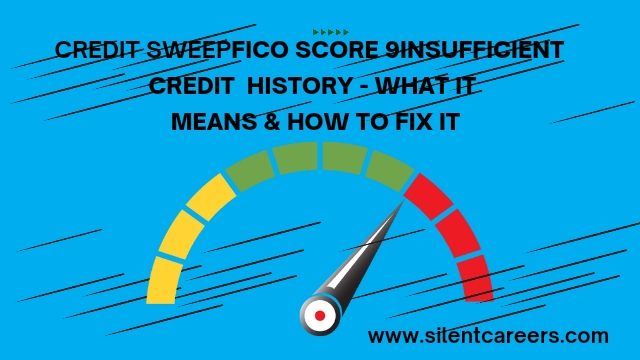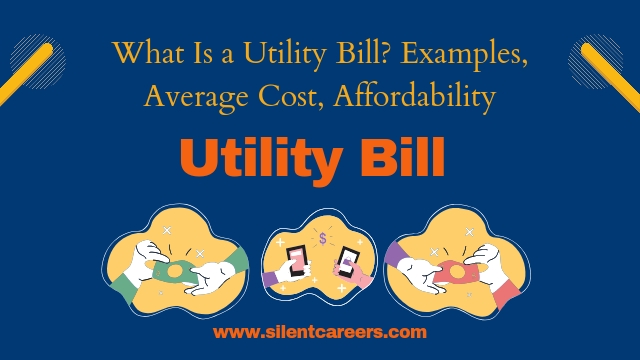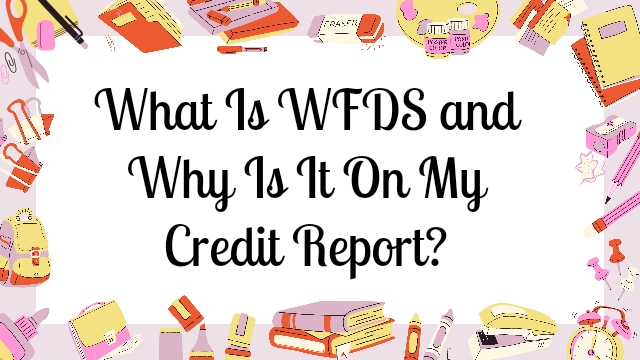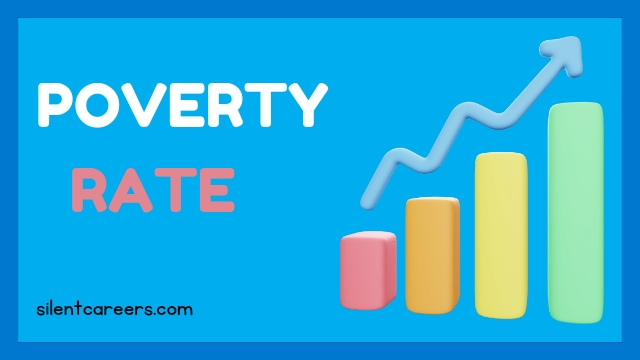
Insufficient credit history means you have too few credit accounts or limited credit activity. This can make it challenging to qualify for loans or credit cards. Building credit through secured cards, small loans, or becoming an authorized user can help.

What does insufficient credit history mean?
Insufficient Credit History: Meaning & Definition
Meaning:
Insufficient credit history refers to having too few credit accounts or not enough activity on your credit report to generate a reliable credit score. This often occurs when someone is new to credit, such as young adults or recent immigrants.
Definition:
Insufficient credit history is a situation where a consumer lacks a significant track record of borrowing and repaying credit, making it difficult for lenders to assess their creditworthiness. This can result in challenges when applying for loans, credit cards, or other financial products.
Insufficient Number of Accounts: Meaning & Definition
Meaning: Having an insufficient number of accounts means you do not have enough credit accounts (such as credit cards, loans, or other credit lines) on your credit report. This lack of credit activity can impact your credit score and make it difficult for lenders to assess your creditworthiness.
Definition: Insufficient number of accounts refers to a credit profile with too few active or historical credit accounts, which can limit the ability to generate a reliable credit score and demonstrate a history of responsible credit management to potential lenders.
How to Fix Insufficient Credit History
- Open a Secured Credit Card:
- Deposit-Based: These cards require a security deposit, which serves as your credit limit.
- Usage: Use it responsibly by making small purchases and paying off the balance in full each month.
- Become an Authorized User:
- Family or Friends: Ask a trusted family member or friend to add you as an authorized user on their credit card.
- Benefit: Their positive payment history will reflect on your credit report.
- Apply for a Credit-Builder Loan:
- Small Loan: These are small loans designed to help you build credit.
- Payments: Monthly payments are reported to the credit bureaus, helping to establish a credit history.
- Use Store Credit Cards:
- Easier Approval: Store credit cards are often easier to obtain than major credit cards.
- Building Credit: Use them responsibly to build credit.
- Report Rent and Utilities:
- Rent Reporting Services: Use services that report your rent and utility payments to the credit bureaus.
- Impact: On-time payments can help build your credit history.
- Maintain Low Credit Utilization:
- Ratio: Keep your credit utilization ratio below 30% of your available credit.
- Payments: Pay off your balances in full each month.
- Monitor Your Credit Report:
- Regular Checks: Regularly review your credit report for errors and inaccuracies.
- Dispute Errors: Dispute any errors with the credit bureaus to ensure your report is accurate.
- Pay Bills on Time:
- Consistency: Ensure all your bills, including non-credit bills like utilities and rent, are paid on time.
- Impact: Consistent on-time payments are crucial for building a positive credit history.
By following these steps, you can gradually build a robust credit history and improve your creditworthiness over time.
Clearing up the term insufficient in personal finance
Definition: In personal finance, “insufficient” typically refers to a lack or shortage of a necessary financial element. This term is often used in various contexts to describe an inadequate amount of something needed to meet financial obligations or goals.
Contexts:
- Insufficient Funds:
- Meaning: When an account does not have enough money to cover a transaction.
- Example: If you try to write a check or make a purchase but your bank account balance is too low, the transaction will be declined, and you might incur an overdraft fee.
- Insufficient Credit History:
- Meaning: Not having enough credit activity or accounts to generate a reliable credit score.
- Example: A young adult with only one credit card and no loans might have an insufficient credit history, making it harder to get approved for new credit.
- Insufficient Income:
- Meaning: Not earning enough money to cover living expenses or qualify for certain financial products.
- Example: If your income is too low, you might struggle to get approved for a mortgage or loan because lenders might see you as a higher risk.
- Insufficient Savings:
- Meaning: Not having enough saved to meet financial goals or emergencies.
- Example: If you don’t have an emergency fund, you might face financial difficulties in case of unexpected expenses like medical bills or car repairs.
- Insufficient Diversification:
- Meaning: Not having a diversified investment portfolio.
- Example: Investing all your money in a single stock rather than spreading it across various assets can lead to higher risk and potential losses.
Importance:
Understanding the term “insufficient” in various personal finance contexts helps individuals recognize areas where they may need to improve their financial health and take appropriate actions to address these shortcomings.
What a good credit history does for consumers
Benefits of a Good Credit History for Consumers –
- Lower Interest Rates:
- Loans and Credit Cards: Consumers with good credit history often qualify for lower interest rates on loans and credit cards, saving money over time.
- Higher Credit Limits:
- Borrowing Power: Lenders are more likely to offer higher credit limits to consumers with good credit, providing greater financial flexibility.
- Better Loan Approval Chances:
- Mortgage and Auto Loans: A strong credit history increases the likelihood of being approved for mortgages, auto loans, and other types of financing.
- Favorable Terms:
- Loan Conditions: Good credit can lead to more favorable loan terms, such as lower fees, longer repayment periods, and better overall conditions.
- Access to Premium Credit Cards:
- Rewards and Benefits: Consumers with good credit can qualify for premium credit cards that offer rewards, cashback, travel perks, and other benefits.
- Better Insurance Rates:
- Lower Premiums: Some insurance companies use credit history to determine premiums. Good credit can result in lower insurance costs.
- Rental Approval:
- Easier Renting: Landlords often check credit history as part of the rental application process. Good credit can make it easier to rent an apartment or house.
- Employment Opportunities:
- Job Prospects: Certain employers, especially in finance and government, may review credit history as part of the hiring process. A good credit history can positively impact job opportunities.
- Utility Services:
- No Deposits: Utility companies may waive security deposits for consumers with good credit, reducing initial costs for services like electricity, water, and internet.
- Financial Security and Peace of Mind:
- Reduced Stress: A good credit history can provide a sense of financial security and peace of mind, knowing you have access to credit when needed.
Maintaining a good credit history opens up numerous financial opportunities and benefits, helping consumers save money, access better financial products, and improve their overall financial well-being.
Are you ‘credit invisible’ or ‘unscored’?
Credit Invisible:
- Definition: Individuals who have no credit history with any of the three major credit bureaus (Experian, Equifax, TransUnion).
- Implication: Lenders have no information to assess your creditworthiness, making it challenging to obtain credit.
- Common Scenarios: Young adults, recent immigrants, or those who have never used credit accounts.
Unscored:
- Definition: Individuals who have a credit history but insufficient information to generate a credit score.
- Implication: Although you have some credit activity, it’s not enough for credit scoring models to evaluate.
- Common Scenarios: People with very limited credit activity, such as only having a single account with minimal use.
How to Transition from Credit Invisible or Unscored to Scored
- Open a Secured Credit Card:
- Start Building: Use a secured credit card responsibly to begin building your credit history.
- Become an Authorized User:
- Leverage Others’ Credit: Ask a trusted family member or friend to add you as an authorized user on their credit card.
- Apply for a Credit-Builder Loan:
- Small Loan: Take out a small loan specifically designed to help you build credit.
- Use Store Credit Cards:
- Easier Approval: Store credit cards are often easier to obtain and can help build credit.
- Report Rent and Utilities:
- Rent Reporting Services: Use services that report your rent and utility payments to the credit bureaus.
- Regularly Monitor Your Credit:
- Check Progress: Regularly review your credit report to ensure your accounts are being reported correctly.
Benefits of Becoming Scored
- Access to Credit: Easier approval for loans, credit cards, and other financial products.
- Better Terms: Potential for lower interest rates and better terms on loans and credit.
- Financial Opportunities: Improved chances for renting apartments, getting insurance, and even securing employment in some cases.
By taking proactive steps, you can transition from being credit invisible or unscored to establishing a robust credit history that will open up more financial opportunities.
No credit history versus bad credit
No Credit History vs. Bad Credit
No Credit History:
- Definition: A situation where an individual has no recorded credit activity or accounts with the credit bureaus.
- Implication: Lenders have no information to assess your creditworthiness, making it difficult to get approved for credit products.
- Common Scenarios: Young adults, recent immigrants, or individuals who have never used credit accounts.
- Challenges: Difficulty in obtaining loans, credit cards, and sometimes even renting apartments or securing employment.
Bad Credit:
- Definition: A situation where an individual’s credit history shows negative information, such as late payments, defaults, high debt levels, or bankruptcy.
- Implication: Lenders view you as a high-risk borrower, which can result in higher interest rates, lower credit limits, or outright denial of credit applications.
- Common Scenarios: People with a history of missed payments, maxed-out credit cards, foreclosures, or other financial difficulties.
- Challenges: Difficulty in obtaining favorable loan terms, higher insurance premiums, challenges in renting apartments, and possible employment issues.
Differences
- Credit Profile:
- No Credit History: No record exists, so lenders can’t assess your credit behavior.
- Bad Credit: A record exists, but it reflects poor credit management and financial difficulties.
- Lender Perception:
- No Credit History: Uncertainty about your creditworthiness due to lack of data.
- Bad Credit: Known risk due to past financial behavior.
- Approval Chances:
- No Credit History: May get approved for entry-level credit products like secured credit cards or credit-builder loans.
- Bad Credit: May face higher rejection rates and less favorable terms.
- Interest Rates and Terms:
- No Credit History: Typically offered higher interest rates until a positive credit history is established.
- Bad Credit: Generally faces high interest rates and less favorable loan terms due to perceived risk.
Improving Your Credit Status
For No Credit History:
- Open a Secured Credit Card: Build credit by using it responsibly.
- Become an Authorized User: Get added to a trusted family member’s or friend’s credit card.
- Credit-Builder Loans: Use loans specifically designed to build credit.
- Report Rent and Utilities: Use services that report these payments to credit bureaus.
For Bad Credit:
- Pay Down Debt: Reduce outstanding balances to improve your credit utilization ratio.
- On-Time Payments: Make consistent, timely payments on all credit accounts.
- Dispute Errors: Check your credit report for inaccuracies and dispute any errors.
- Credit Counseling: Consider professional advice to manage and improve your credit.
By understanding the differences and taking appropriate steps, you can work towards improving your credit status and gaining better financial opportunities.
Read more: What Is a Good Credit Score? Credit score range for transunion
Checking your information
To check your credit information:
- Obtain Credit Reports: Get free reports from AnnualCreditReport.com for Experian, Equifax, and TransUnion.
- Review Details: Check for accuracy in personal information, accounts, and payment history.
- Spot Errors: Identify any inaccuracies or discrepancies.
- Dispute Inaccuracies: File disputes with the credit bureaus to correct errors.
- Monitor Regularly: Keep track of your credit to ensure it remains accurate.
Fixing an insufficient credit history
To fix an insufficient credit history:
- Open a Secured Credit Card: Start with a secured card to build credit with a deposit-based limit.
- Become an Authorized User: Get added to a trusted person’s credit card to benefit from their positive history.
- Apply for a Credit-Builder Loan: Take out a small loan specifically designed to build credit.
- Use Store Credit Cards: Apply for store credit cards to start establishing credit.
- Report Rent and Utilities: Use services that report your rent and utility payments to credit bureaus.
- Make On-Time Payments: Consistently pay bills on time to establish a positive payment history.
What is limited insufficient credit experience
Limited Insufficient Credit Experience refers to having minimal or inadequate credit activity, which can result in a lack of credit history or an incomplete credit profile. This term describes individuals who:
- Have Few Accounts: Only have a small number of credit accounts or very limited credit activity.
- Limited Track Record: Lack sufficient history to generate a reliable credit score.
- Challenges: May struggle to get approved for loans or credit cards, and may face higher interest rates due to the lack of substantial credit data.
How to Address Limited Insufficient Credit Experience
- Open New Credit Accounts: Start with secured credit cards or credit-builder loans.
- Become an Authorized User: Benefit from the credit history of a responsible person.
- Make Regular Payments: Establish a positive payment history with any existing accounts.
- Report Non-Credit Payments: Use services to report rent and utility payments to credit bureaus.
Building a more extensive and positive credit history can improve your credit profile and increase your chances of obtaining favorable credit terms.
Checking accounts and debit cards don’t count for credit
Checking Accounts and Debit Cards Don’t Count for Credit:
- Credit Reporting: Checking accounts and debit cards do not impact your credit report or credit score. They are not reported to the credit bureaus.
- Credit History: They do not contribute to building a credit history because they do not involve borrowing or repaying money.
- Credit Impact: Since they don’t involve credit transactions, they don’t affect your creditworthiness or credit score.
To build or improve your credit, focus on credit accounts like credit cards, loans, and credit-builder products that are reported to credit bureaus.
Overcoming a short credit history
To overcome a short credit history:
- Open a Secured Credit Card: Start with a secured card, which requires a deposit and helps build credit with responsible use.
- Apply for a Credit-Builder Loan: Use these small loans designed specifically to help build your credit.
- Become an Authorized User: Get added to a trusted person’s credit card account to benefit from their positive credit history.
- Use Store Credit Cards: They are often easier to obtain and can help establish a credit history.
- Report Rent and Utilities: Use services that report your rent and utility payments to the credit bureaus.
- Make Timely Payments: Ensure all bills and credit accounts are paid on time to build a positive payment history.
These steps help establish and strengthen your credit history, leading to better credit scores and more favorable financial opportunities.
How Long Does it Take to Fix Insufficient Credit History?
Fixing insufficient credit history typically takes several months to a few years, depending on the steps you take and how consistently you follow them.
- Building Initial Credit: Opening new accounts like secured credit cards or credit-builder loans and using them responsibly can start showing improvements within 3-6 months.
- Positive Payment History: Establishing a track record of on-time payments will take at least 6-12 months to reflect positively.
- Long-Term Improvement: Achieving a robust credit history and higher credit scores generally takes 1-2 years of consistent credit activity and responsible management.
Patience and consistency are key in gradually building a strong credit history.
How to Get Approved for a Credit Card With Insufficient Credit History
To get approved for a credit card with insufficient credit history:
- Apply for a Secured Credit Card:
- Deposit-Based: Requires a security deposit, which serves as your credit limit.
- Reporting: Helps build credit with responsible use.
- Consider a Student Credit Card:
- Easier Approval: Designed for individuals with limited credit history, often with lower credit limits.
- Get a Co-Signer:
- Shared Responsibility: A co-signer with good credit can help you qualify for a card.
- Look for Credit-Builder Cards:
- Entry-Level: Specifically designed to help build credit for those with minimal history.
- Become an Authorized User:
- Leverage Existing Credit: Being added to someone’s credit card can improve your chances of approval.
- Check for Pre-Approval Offers:
- Soft Inquiry: Allows you to see if you’re likely to be approved without impacting your credit score.
Following these steps can increase your chances of approval while building your credit history.
Is Insufficient Credit History The Same As Bad Credit History?
Insufficient Credit History and Bad Credit History are not the same, though they both affect your ability to obtain credit. Here’s a comparison:
Insufficient Credit History:
- Definition: Refers to having minimal or no credit activity, resulting in a lack of substantial credit information or a credit score.
- Characteristics:
- Limited Records: Few or no credit accounts reported to the credit bureaus.
- Challenges: Harder to obtain credit because lenders lack information to assess creditworthiness.
- Examples: Young adults, recent immigrants, or those new to credit.
Bad Credit History:
- Definition: Refers to having a credit history with negative information, such as missed payments, high debt levels, or bankruptcies.
- Characteristics:
- Negative Records: Includes late payments, defaults, and other derogatory marks.
- Challenges: Higher risk perceived by lenders, leading to higher interest rates and difficulty obtaining credit.
- Examples: Individuals with a history of financial mismanagement or significant debt issues.
Key Differences:
- Credit Data: Insufficient credit history lacks enough data to generate a credit score, while bad credit history has negative data affecting the score.
- Lender Perception: Insufficient credit history presents uncertainty due to limited information, while bad credit history presents a known risk due to past financial behavior.
Addressing Each Situation:
- Insufficient Credit History: Build credit through secured cards, credit-builder loans, and responsible credit usage.
- Bad Credit History: Improve credit by paying off debts, making timely payments, disputing errors, and seeking credit counseling.
Understanding these differences helps in addressing each situation appropriately and working towards better credit health.
Insufficient Credit History vs. Insufficient Funds
Insufficient Credit History
Definition:
- Refers to having minimal or no credit activity, resulting in an incomplete or nonexistent credit profile.
Characteristics:
- No Credit Records: Lack of credit accounts or activity reported to credit bureaus.
- Challenges: Difficulty in obtaining credit due to a lack of data for lenders to assess creditworthiness.
- Common Situations: Young adults, new immigrants, or individuals who have never used credit.
Impact:
- Credit Applications: Harder to qualify for loans, credit cards, or mortgages.
- Approval: May receive higher interest rates or require higher deposits.
Insufficient Funds
Definition:
- Refers to not having enough money in a bank account to cover a specific transaction or expense.
Characteristics:
- Account Balance: The amount in your account is lower than the amount needed for a transaction.
- Challenges: Can lead to declined transactions, overdraft fees, and potential penalties.
Impact:
- Daily Transactions: May result in bounced checks or declined debit card purchases.
- Fees: Can incur overdraft or insufficient funds fees from the bank.
Key Differences:
- Nature of Issue:
- Insufficient Credit History: Affects your ability to obtain credit due to lack of credit data.
- Insufficient Funds: Affects your ability to make purchases or pay bills due to a lack of available money in your account.
- Impact on Financial Activities:
- Insufficient Credit History: Impacts long-term financial opportunities and creditworthiness.
- Insufficient Funds: Impacts immediate financial transactions and can lead to short-term issues like fees and declined transactions.
- Solutions:
- Insufficient Credit History: Build credit with secured cards, credit-builder loans, or becoming an authorized user on another’s card.
- Insufficient Funds: Improve cash flow by budgeting, monitoring account balances, and managing expenses.
Understanding these differences helps in addressing financial issues effectively and managing both credit and cash flow challenges.
How having insufficient credit history could affect your finances
Having insufficient credit history can significantly impact your finances:
- Difficulty Obtaining Credit:
- Approval Challenges: Harder to get approved for credit cards, loans, or mortgages due to lack of data.
- Higher Interest Rates:
- Cost of Credit: May face higher interest rates on loans and credit cards if approved, leading to higher overall costs.
- Limited Financial Products:
- Access Issues: Fewer options for credit products, such as premium credit cards or favorable loan terms.
- Rental and Employment Challenges:
- Approval Hurdles: Difficulty in securing rentals or certain jobs that require credit checks.
Building a positive credit history can help mitigate these issues and improve financial opportunities.
4 steps to improve your limited credit history
To improve a limited credit history, follow these four steps:
Diverse Accounts: Combine credit cards, installment loans, and other credit types to build a well-rounded credit profile.
Open a Secured Credit Card:
Start Building: Use it responsibly to establish a positive credit history.
Apply for a Credit-Builder Loan:
Small Loan: Designed specifically to help build credit with regular, on-time payments.
Become an Authorized User:
Leverage Existing Credit: Benefit from a responsible person’s established credit history.
Use a Mix of Credit Types:
Diverse Accounts: Combine credit cards, installment loans, and other credit types to build a well-rounded credit profile.
Time to turn your insufficient credit history around!
Turning your insufficient credit history around involves proactive steps to build and improve your credit profile. Here’s a roadmap to guide you:
- Open a Secured Credit Card:
- Deposit-Based: Start with a secured card to establish credit. Make small purchases and pay off the balance monthly.
- Get a Credit-Builder Loan:
- Small Loan: Apply for a credit-builder loan from a bank or credit union. Repay it on time to build positive credit history.
- Become an Authorized User:
- Leverage Positive History: Have a trusted individual add you as an authorized user on their credit card. This can help boost your credit score.
- Report Non-Credit Payments:
- Rent and Utilities: Use services that report rent and utility payments to credit bureaus to build your credit history.
- Make Timely Payments:
- Consistency: Ensure all bills and credit accounts are paid on time. This establishes a positive payment history.
- Monitor Your Credit:
- Regular Checks: Review your credit reports regularly to track progress and address any discrepancies.
By following these steps and being consistent, you can effectively turn around your insufficient credit history and build a strong credit profile.








